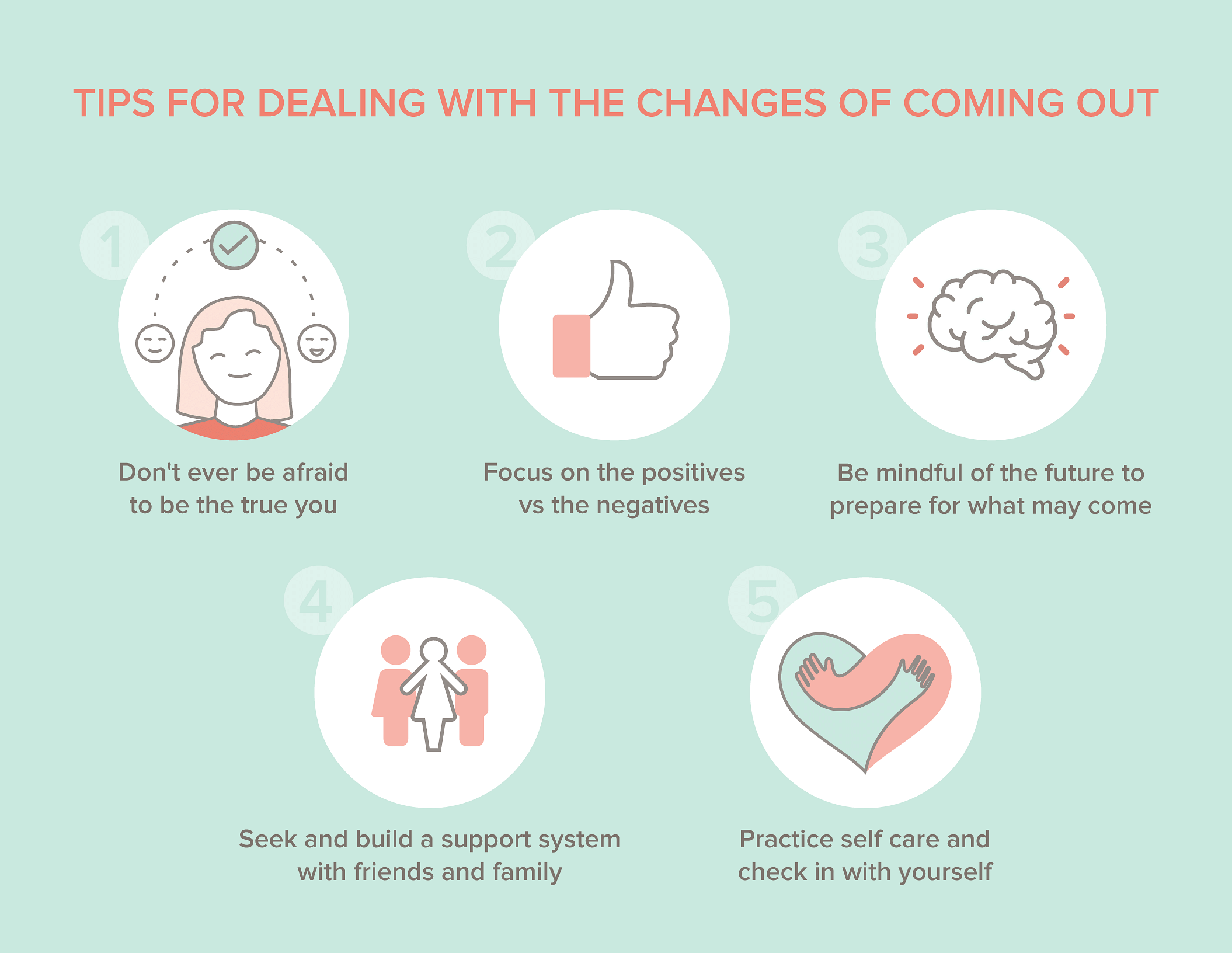We’ve all heard the term ‘coming out’ but while used in many conversations, many do not know the detailed nuance and complicated path of how to come out to loved ones and help them understand your sexuality.
Coming out of the closet entails the disclosure of one’s non-heterosexual orientation to oneself and to those around them, i.e. family, friends, extended networks, etc. It is a psychosocial process and can be challenging especially since traditionally society dictates heterosexual orientation as being the ‘norm’.
While it is an act that can happen gradually or at once by an individual, it is important that they take their time when making the decision. Exploring one’s sexuality is a personal and subjective choice.
Here is some guidance for those who wish to come out:
1) Don’t feel pressured to come out if you are not ready to
There is no such thing as the right time to come out. It is important to remember that coming out is about you and no one else. You are not coming out to please others. Therefore, it is important that you accept it yourself first. Due to societal norms, you may have doubts pertaining to feeling ashamed, isolated and afraid – and it is normal to go through an array of emotions while going through this process. ‘How to come out?’ is a question that can be answered only when you are ready for it.
2) You can choose to process it alone or talk about it
The support of a friend, therapist, family member or colleague would be an added benefit. This person or people should be trustworthy and would be able to empathise and understand you. You have to remember that it is about your safety and well-being first.
3) You do not need to be labelled
It is also important to remember that you don’t necessarily have to label yourself if you are finding it difficult to identify with one gender orientation or sexuality. You should simply listen to your feelings and allow yourself the flexibility to explore whether you prefer to put a label i.e. gay, lesbian or bisexual or keep it more open and fluid. It is important to remember that there is no right or wrong way to come out.
4) Don’t feel pressured into fitting into a box
Stereotypes that may appear on TV or media could tend to cause people to have a certain view of particular gender orientations. Your sexual orientation does not define you – it is part of you. Coming out and discovering your sexuality is not only an exciting and liberating experience but also gives you space to grow up, find out who you are, what you like and how you want to live. You are your own person and therefore you do not have to fit into a type.
5) Being prepared can help you feel more confident
Once you have accepted this reality yourself and feel it is time to tell others – prepare yourself. It is normal to feel anxiety and therefore read research articles, real life coming stories and interviews where people have shared a similar experience. You will soon realise that you are not alone. Hearing how things turned out for others will prepare you to partake in this journey further preparing you for the best and the worst.
Emphasis and focus on the positives about coming out; it is one of the most amazing and liberating experiences as you will finally be able to be your whole self without hiding under a façade. Start by telling one person who you feel the closest to and who will be able to support, understand and empathise with you. Once you have opened up to one person, it will become easier and clearer to open up to others. You will also feel confident as you will have these people’s support.
6) You can’t please everyone, and that’s okay
There may be negative or confusing reactions by some people in your life when you speak to them about your orientation. It is important to remember that it took you time to reach a comfortable place and therefore it can be challenging to expect loved ones to provide immediate acceptance of your sexuality. They may need some time to process the news, see what they feel about it and communicate it to you in due time.
Remember surprise, shock and negative reactions does not always mean disapproval. Thus, it is explicit that coming out, although exciting, is a complex process with an array of different emotions.

The main thing to keep in mind is to provide yourself with time and kindness while going through this experience.
If the process seems too hard or results in negative consequences, please reach out to a professional therapist who can assist you.
Our experts work round the clock to provide you with the answers that you are looking for. If you have any, leave it in the comment section below or send us a DM at @nuawoman. This is a safe space so don’t hold back on any doubts you may have about your body and mind.
To know more about mental health, read Ishita Pateria’s articles right here.









